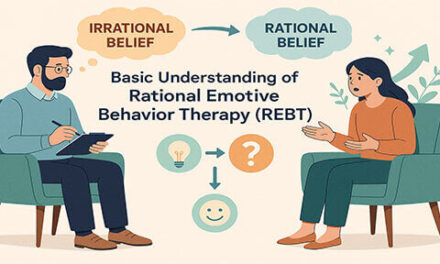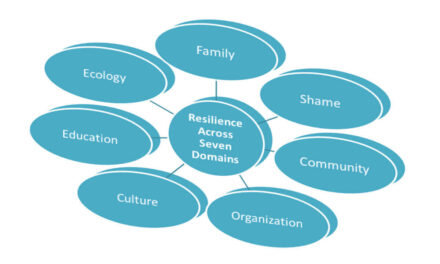How to Develop Achievement Motivation:
Achievement motivation is a dynamic force that propels individuals towards success and fulfillment in various aspects of life. Whether in academic pursuits, professional endeavors, or personal growth, fostering achievement motivation is essential for unlocking one’s full potential. In this guide, we will explore how to develop achievement motivation across different domains, including the home, school, and society.
Section 1: Foundations in the Home Environment:
The home environment serves as the initial crucible for the development of achievement motivation. Parents, as primary caregivers and influencers, play a pivotal role in shaping a child’s attitudes and aspirations. Here are key considerations for fostering achievement motivation at home:
1.1 Parental Expectations and Guidance: Parents should set realistic yet challenging expectations for their children. Providing guidance and support in navigating challenges cultivates a sense of purpose and determination.
1.2 Creating a Supportive Atmosphere: A nurturing home environment that values effort, resilience, and learning fosters a positive mindset. Encouraging curiosity and exploration helps children view challenges as opportunities for growth.
1.3 Celebrating Milestones: Recognizing and celebrating achievements, no matter how small, instills a sense of accomplishment. This positive reinforcement reinforces the value of hard work and dedication.
1.4 Open Communication: Establishing open communication channels allows parents to understand their child’s aspirations and concerns. This dialogue enables parents to provide targeted support and encouragement.
Section 2: School Environment (The Teacher’s Crucial Role):
Teachers wield significant influence in shaping the achievement motivation of students. The classroom becomes a microcosm where attitudes towards learning and success are molded. Here are specific strategies for teachers to foster achievement motivation:
2.1 Storytelling as a Motivational Tool: Utilizing stories of accomplished individuals from diverse backgrounds creates relatable role models. These stories inspire students, illustrating the impact of perseverance, resilience, and dedication.
2.2 Positive Classroom Environment: The physical and emotional classroom environment plays a crucial role in shaping students’ attitudes. A positive atmosphere, characterized by encouragement, support, and inclusivity, enhances motivation.
2.3 Realism and Reasonability: Teachers should emphasize that setting and achieving goals is a realistic and reasonable endeavor. This mindset shift is crucial for breaking down self-imposed limitations and fostering a growth-oriented mentality.
2.4 Linking Motives to Future Goals: Connecting achievement motives to students’ future aspirations provides context and relevance. Assigning independent responsibilities empowers students to take ownership of their goals.
2.5 Enhancing Self-Image: Teachers should highlight how the adoption of a new motive contributes to an improvement in self-image. A positive self-perception becomes a powerful driving force for students to strive for success.
2.6 Cultural Relevance: Emphasizing that a new motive aligns with and improves prevailing cultural values fosters a sense of purpose and cultural identity among students.
2.7 Goal Commitment and Accountability: Teachers should guide students in setting concrete, achievable goals related to the newly developed motive. Fostering a sense of commitment and accountability strengthens their resolve.
2.8 Progress Monitoring and Reflection: Encouraging students to keep a record of their progress towards their goals reinforces the importance of self-reflection and self-evaluation. This habit cultivates a growth-oriented mindset.
2.9 Conducive Social Climate: Efforts to create a supportive and inclusive social climate in the classroom make each student feel a sense of belonging to a group. A collaborative environment enhances motivation and shared success.
Section 3: Societal Influences (Shaping Achievement Motivation in the Broader Context):
Beyond the home and school, societal factors play a significant role in shaping the achievement motivation of individuals. Here are considerations for fostering a society that encourages and supports high achievement:
3.1 Recognizing Achievement-Oriented Communities: Identifying and celebrating communities that are inherently achievement-oriented provides positive models for individuals. These communities can serve as sources of inspiration and mentorship.
3.2 Cultural and Social Philosophy: Understanding the societal backdrop and prevalent cultural and social philosophies is crucial. Aligning educational practices with these values enhances the relevance and effectiveness of achievement motivation strategies.
3.3 Community Engagement: Collaborative efforts between schools, parents, and the broader community create a holistic approach to developing achievement motivation. Workshops, seminars, and community events can serve as platforms for sharing insights and best practices.
In conclusion, developing achievement motivation is a nuanced process that requires a collaborative effort from various stakeholders. The home, school, and society each contribute to the intricate tapestry of an individual’s motivation to achieve. By recognizing the significance of these influences and implementing targeted strategies, we can unlock the potential for achievement in individuals, fostering a mindset of continuous growth and success that extends throughout their lives.
Frequently Asked Questions (FAQs):
What is achievement motivation?
Achievement motivation refers to the internal drive or desire that compels individuals to strive for success, set and accomplish goals, and continuously improve their performance. It plays a crucial role in various aspects of life, including academics, career, and personal development.
How does the home environment influence achievement motivation?
The home environment significantly influences achievement motivation. Parents can shape a child’s attitudes and aspirations by setting realistic expectations, providing guidance, creating a supportive atmosphere, and celebrating milestones. A nurturing home environment lays the foundation for a positive mindset and a drive for success.
What role do teachers play in fostering achievement motivation?
Teachers play a crucial role in shaping achievement motivation within the school environment. They can inspire students through storytelling, create a positive classroom atmosphere, emphasize the realism and reasonability of goals, link motives to future aspirations, enhance self-image, and promote a commitment to goals. Teachers also contribute to the development of a conducive social climate in the classroom.
How can teachers use storytelling to motivate students?
Storytelling is a powerful tool for motivating students. Teachers can share stories of accomplished individuals from various fields, highlighting their struggles, perseverance, and ultimate success. These stories serve as relatable examples and inspire students to overcome challenges, fostering a sense of achievement motivation.
Why is a positive classroom environment important for achievement motivation?
A positive classroom environment contributes to the development of achievement motivation by creating a space where students feel encouraged, supported, and included. Positive interactions, constructive feedback, and a sense of belonging all contribute to a conducive atmosphere that enhances motivation and a willingness to strive for success.
How can achievement motivation be linked to cultural values?
Emphasizing the alignment of achievement motivation with prevailing cultural values reinforces a sense of purpose and identity. Teachers can connect the development of new motives to cultural values, illustrating how personal growth and success contribute positively to the broader cultural context.
What are some practical strategies for goal-setting and progress monitoring?
Teachers can guide students in setting concrete, achievable goals related to their newly developed motives. Encouraging students to keep a record of their progress towards these goals fosters self-reflection and accountability. Goal-setting and progress monitoring are essential components of developing a growth-oriented mindset.
How can communities contribute to the development of achievement motivation?
Communities can contribute by recognizing and celebrating achievements, providing mentorship and support, and creating platforms for sharing insights and best practices. Collaborative efforts between schools, parents, and the broader community enhance the holistic development of achievement motivation.
Can achievement motivation be developed later in life?
Yes, achievement motivation can be developed at any stage of life. While early influences, such as those from the home and school, play a significant role, individuals can cultivate and enhance their achievement motivation through self-reflection, goal-setting, and a commitment to personal growth.
What are the long-term benefits of fostering achievement motivation?
Fostering achievement motivation contributes to lifelong success and fulfillment. Individuals with strong achievement motivation are more likely to set and achieve challenging goals, exhibit resilience in the face of obstacles, and continuously seek opportunities for personal and professional development. This mindset positively influences various aspects of life, leading to a more satisfying and accomplished existence.

Library Lecturer at Nurul Amin Degree College










